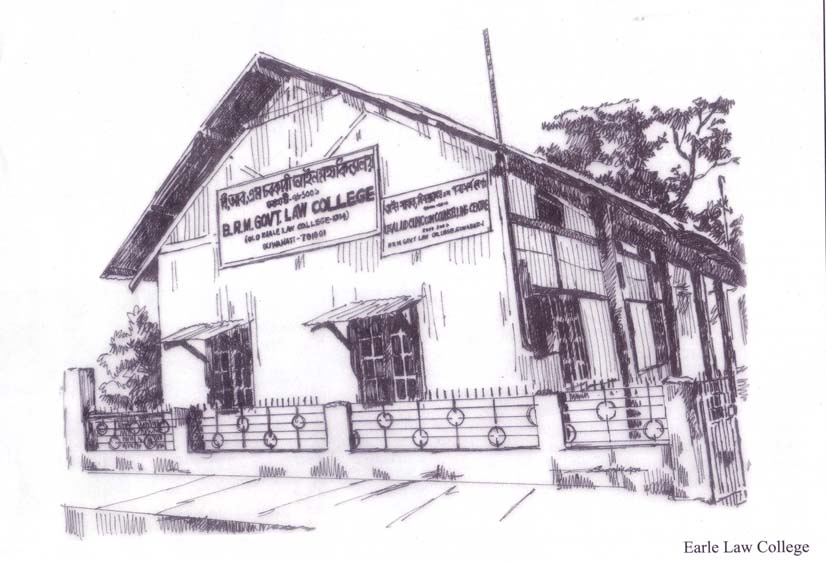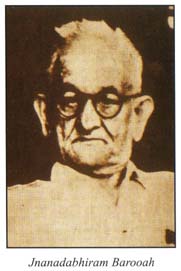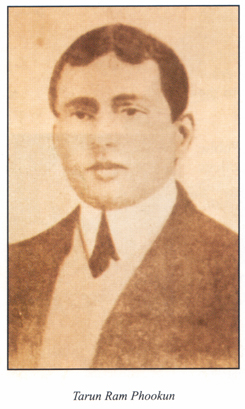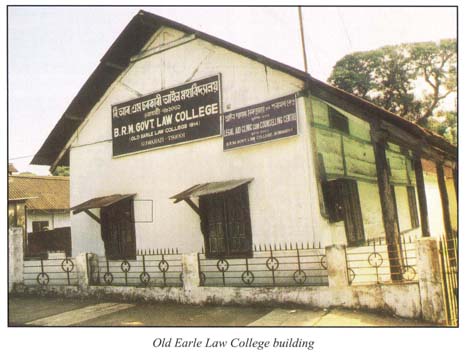| LEARNING THE LAW |
 |
Consequent to the establishment of Cotton College, Manick Chandra Baruah, Nabin Chandra Bodoloi and other leading citizens of the town made a demand for introduction of law classes. Convinced by the justification of the demand, Sir Henry Cotton, the Chief Commissioner of Assam to the Government of India, recommended in 1901: “There is a genuine demand among the Assamese for law classes in the Gauhati Government College. His excellency, the Governor General in Council, may be pleased to sanction the proposed affiliation of the college to the Calcutta University in law.”
|
This recommendation was however discouraged by Dr Booth, the then Director of Public Instructions. His logic was that law classes could be introduced only if and after Cotton College was elevated to a first grade college. Interestingly, there were four law classes going on in different high schools of Assam at that time for imparting education for pleadership examination; and these were also quit popular among he students. A few years later, when Cotton College was elevated to first grade, the demand for a law college was renewed. On September 9, 1912 an education conference was held at Curzon Hall that was addressed by leading citizens including Manick Chandra Baruah, Nabin Chandra Bardoloi, Tarun Ram Phookun, Rai Bahadur Kalicharan Sen and S N Lahiri. A strong demand was raised for the establishment of a law college for which public opinion was also mobilized. Honoring public sentiment, in 1914, Sir Archdale Earle, the then Chief Commissioner of Assam recommended that a law college at Guwahati be set up for a period of five years on an experimental basis. A sum of Rs 63,000 was then sanctioned for acquisition of land and construction of the building. |
|
Jnanadabhiram Barooah, bar at law, and then serving as a munsif Guwahati on his return from England, was appointed the first principal of the college. According to official records the first meeting of the college governing body was held on July 6, 1914 which was attended by Commissioner F C Henniker, Principal of Cotton College F W Sudmerson, Principal of Law College J Barooah, bar at law Tarun Ram Phookan and Babu Kalicharan Sen government pleader.
|
|
In this meeting a decision was taken to request the Cotton College authorities to allow the use of three rooms of the hostel blocks as lecture room, office and library of the Law College. It was also decided that classes would be held from 1pm to 8:30 pm from Monday through Friday. The class routine was fixed taking the Dacca Law College routine as he model, and the list of holidays was in accordance with that of Cotton College. It was in this meeting that Tarun Ram Phookun and Satya Nath Bora were appointed lectures while Prof Brown, a professor of Cotton College, was appointed part-time lecture. The classes of the Law College first started in the premises of Cotton College. But soon, a prime plot of land on the eastern side of Dighalipukhuri was bought from a person called Petua and a big Assam-type structure constructed. The college was then named after Sir Archdale Earle in recognition of his services towards the establishment of the first institute of higher legal education in Assam. |
As the college had been given provisional permission for five years, the matter of its retention as a permanent institute was taken up again in 1918-19. In 199 on a “strong recommendation” of the governing body for its continuance, the government decided to retain it “in permanence for the promotion of legal studies in the province”. Thereafter, the Earle Law College was affiliated to the Calcutta University.
|
In 1942, at the time of World War II, the college building was occupied by military authorities and for sometime classes had held in a rented premise. In 1948 after the establishment of the Gauhati University, the college was affiliated to it. Interestingly, it was in the Earle Law College building that the varsity’s postgraduate classes were held for the few years after the latter’s establishment. Later the Earle Law College was to be renamed the University Law College and shifted to the campus of the varsity. The old Earle Law College building however still stands with pride, bearing the stamp of the ‘pioneer of legal education’.
|
|


